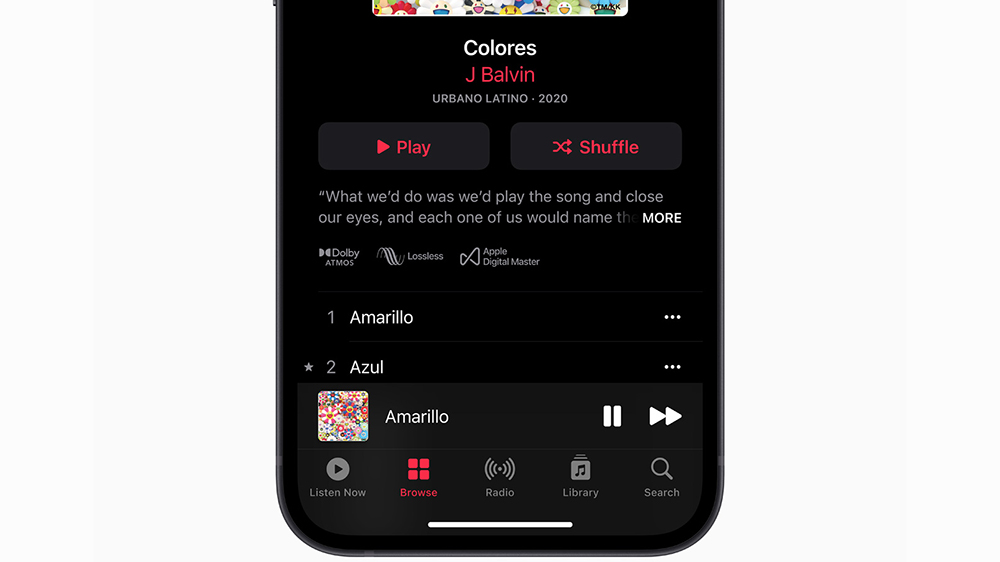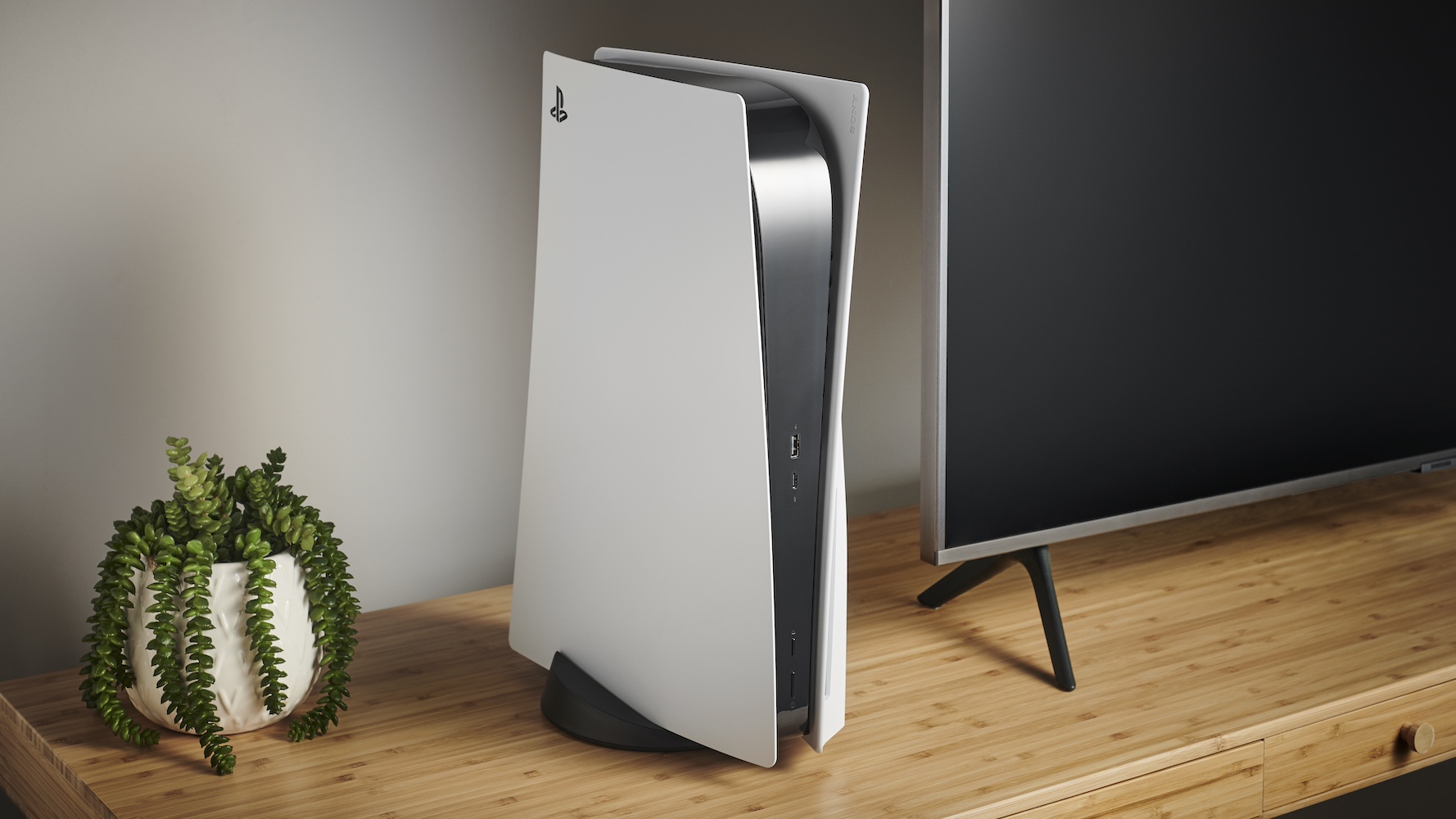With Apple and Amazon offering lossless streaming for no extra charge, what now for their rivals?
How will Spotify, Tidal, Deezer and Qobuz react to their rivals' move?

When Tidal began offering hi-res audio streaming in 2017, becoming only the second streaming service to do so after Qobuz broke that ground the year before, we didn’t expect hi-res streaming to be a two-player game for quite so long.
Now though, not only have their rivals caught up but they are attempting to leapfrog the established players. And this could change the game significantly.
Higher audio quality, lower subscription prices
Apple Music has just embraced hi-res streaming with open arms – and isn’t asking people to pay a penny more for it. Its all-encompassing individual subscription plan is sticking at £10 ($10, AU$12) per month, significantly cheaper than the monthly hi-res tiers from Tidal (£20, $20, AU$24) and Qobuz (£15, $15, AU$25).
In response to Apple, Amazon has now bundled its Music HD hi-res tier, which arrived in 2019, into its standard plans rather than asking a £5 ($5) premium. That means the monthly subscription has dropped from £13 ($13) to £8 ($8) for Prime customers, and from £15 ($15) to £10 ($10) for everyone else.
Meanwhile, Deezer offers CD-quality for £15 ($15, AU$20) per month, and Spotify plans to begin offering CD-quality – no mention of hi-res so far – later this year for a fee expected to be equal to or perhaps even higher than its current £10 ($10, AU$12) per month asking price.
Maybe Apple's bold move means that Spotify won't ask a premium price or shun hi-res audio for its imminent Spotify HiFi tier. Realistically, Spotify’s popularity and class-leading usability mean it can probably afford not to match or undercut its rivals and still remain competitive. Even 'only' CD quality may be enough to keep its loyal subscribers onboard.
The wider adoption of hi-res audio streaming by big players such as Apple and Amazon has brought better sound quality into the mainstream. The fact you can have unlimited access to it for as little as £8 ($8) per month is great news for those who care for sound quality.
Get the What Hi-Fi? Newsletter
The latest hi-fi, home cinema and tech news, reviews, buying advice and deals, direct to your inbox.
With Apple offering hi-res at no extra charge, and Amazon readjusting its offering accordingly, the streaming service competition has reached a crossroads, with all ways potentially pointing to tier simplicity and affordability.
Do USPs justify premium prices?
So how will the competition justify charging extra – in Tidal’s case, double? Perhaps rivals will now have to reconsider their current monthly fees, and if they don’t, hope that their unique selling points are enough.
Tidal, for example, uses MQA to power its hi-res audio streams. It’s a technology that arrived as a handy enabler for hi-res streaming back when a method of efficiently packaging and transporting high-resolution (and therefore large) files without lossy compression was a necessity.
Now that Amazon and Apple have used other methods to do this (Amazon doesn’t disclose specifics, while Apple uses its ALAC format), MQA isn’t quite as fundamental to hi-res streaming as it once seemed. However, as it is now licensed to many hi-fi brands, MQA-powered Tidal Masters tracks can be played through an increasing amount of audio hardware, via app support or Tidal Connect. If you own a compatible device that doesn’t play ball with Amazon Music HD or Apple Music, you may well be swayed to stick with Tidal.
Naturally, device support will play a part in people’s subscription decisions. While desktop and mobile apps are par for the course as far as lossless support is concerned, some services also have their own quirks. For example, Qobuz has recently become the first to bring 24-bit hi-res streaming to Sonos speakers, and its vast hi-res catalogue is also accessible via the widely supported Chromecast (which supports transmission up to 24-bit/96kHz).
Apple Music is only an attractive proposition for owners of Apple devices – and even then, its hi-res implementation isn’t without its frustrations. We wonder whether Apple Music’s hi-res streaming will be supported by AirPlay 2 (or 3!) in the future to open up the device ecosystem, or even by some new Apple-developed Bluetooth codec for inter-Apple device wireless transmission.
You can bet that Spotify HiFi will have almost universal support upon, or soon after, launch, too.
Tidal also has a burgeoning catalogue of immersive 3D tracks, thanks to its support for Dolby Atmos Music and Sony 360 Reality Audio. That said, Amazon Music HD also supports these two formats, Deezer supports the latter, and Apple will have its Dolby Atmos-powered Spatial Audio catalogue. Who knows whether Spotify has any immersive audio plans up its sleeve for its HiFi tier?
Qobuz is the audiophile’s choice for its hi-res catalogue, as well as the fact its most premium tier (Sublime) also includes discounts on hi-res downloads. But it has a comparatively limited catalogue and has long been a more niche option compared to its rivals.
Over to you, Spotify et al.
Right now, Apple Music appears to offer the best-value hi-res streaming proposition for iOS users, while Amazon Music HD does that for everyone else, especially Prime members. It's the service we'd pick right now for mobile and desktop listening.
Spotify could, of course, outdo all of them with an excellent value, hi-res HiFi tier, but even if it doesn't, the likes of Tidal, Deezer and Qobuz are still being significantly undercut by their competition.
So will the latest moves by the streaming giants be nails in their coffins or a necessary force for change? We very much hope it's the latter.
MORE:
Our pick of the best music streaming services
The lowdown on Spotify HiFi: quality, price, release date, and latest news
10 of the best hi-res albums on Tidal Masters
Apple Music lossless: which devices will (and won't) play lossless, Spatial Audio
Becky is the managing editor of What Hi-Fi? and, since her recent move to Melbourne, also the editor of the brand's sister magazines Down Under – Australian Hi-Fi and Audio Esoterica. During her 11+ years in the hi-fi industry, she has reviewed all manner of audio gear, from budget amplifiers to high-end speakers, and particularly specialises in headphones and head-fi devices. In her spare time, Becky can often be found running, watching Liverpool FC and horror movies, and hunting for gluten-free cake.
-
kenosha My Cambridge CXNv2 connected to my stereo is the best way for me to listen to hi-res music. Neither Apple Music nor Amazon Music HD work natively on the CXN, so I will continue with Qobuz or TIDAL for now.Reply -
erbasically Deezer just appointed a new CEO whose previous job was in online dating. He's said he's "passionate about music and podcasts". Being passionate about music is surely a good thing but podcasts? A bit worrying. Does anyone pay for a streaming service so they can listen to something that's legally available for free elsewhere? Or does this mean that lossless is going to be a loss-leader and the streaming services see charging for podcasts as the way to make money?Reply -
bristollinnet The audiophile community to date has been served by a mix of slightly iffy streamers interspaced with an occasional gem. Gapless playback was an early issue not entirely solved by manufacturers, and software support and overall user experience has been (lets be honest) fairly poor, hence why something like Roon exists.Reply
What Apple do is take something that isn't really that good, and make it semi-pleasurable. They integrate hardware and software in a way that bespoke artisan audiophile manufacturers can only dream about.
I've tried all the current hi-res providers over the years and find Qobuz the best for me. I'm on an annual subscription and am fairly happy with it and in all likelihood will renew for the next 12 months. I feed Qobuz from my Mac mini to Kanto YU2 active speakers for desktop audio when working from home, and when I'm bothered I'll stream Qobuz to my Arcam CDS50 and into my main HiFi. If I'm working at the office, I'll have Qobuz available through their iPhone app into wired headphones.
However, if Apple give me a sensible route to cut out Arcam (hardware good, software rubbish), I'd jump at it. -
Hifiman Although the headlines are all about Apple making CD/hi-res more affordable (and good on them for doing so) I have a feeling the biggest long-term subscriber winner at this point will be Amazon, albeit only because their hand was forced by Apple.Reply
I was already using Amazon Music HD because although I had tried Tidal and the like, its catalogue and audio quality were simply more than good enough for me and at a significantly lower cost. Now, as one of its 200 million Prime subscribers, this will be available to me at £7.99pm. None of the 200m can ignore that beyond some Apple users who wish to remain as close to Apple as possible. For the other Apple users (like me), and yet others who want a more agnostic platform than Apple can provide, Amazon will do just fine.
And Spotify? Their plan this year has been to explore - or implement - raising their prices. I can only hope the reason for this is that they got wind of Apple’s plans and decided on putting some subscriptions up because they knew it was likely their last chance to do so. But if they still have further rises in mind, or wish to charge a premium for CD quality, I think that could be a turning point for both them and Amazon. -
I've had Prime for over 10 years and am heavily invested in the Amazon ecosystem anyway. Amazon is cheaper than and has superior sound quality to Tidal.Reply
Amazon's music app is a hot mess. No easy way to add songs to a master favorites list. Same with artists and albums. It requires me to put the app in exclusive mode manually every time I open it. Then the app has to close before you can play any audio from any other source. It doesn't remember the last song played much less have it queued up to play the next time you open the app.
They gave me another 3 months free when they dropped the price so I'm going to play with it some more but I wish they'd put some usability effort into the app. -
Winter amazon . say what you want these guys deliever . retail music .video . etc etc . they have played their trump card . as an amzon prime member this is for sure great news . amazon hd beats for me all the comp . ok spotify and tidal qobuz . they have to respond ? this is maybe not a nail but a big thorn in thier sides . !!Reply

